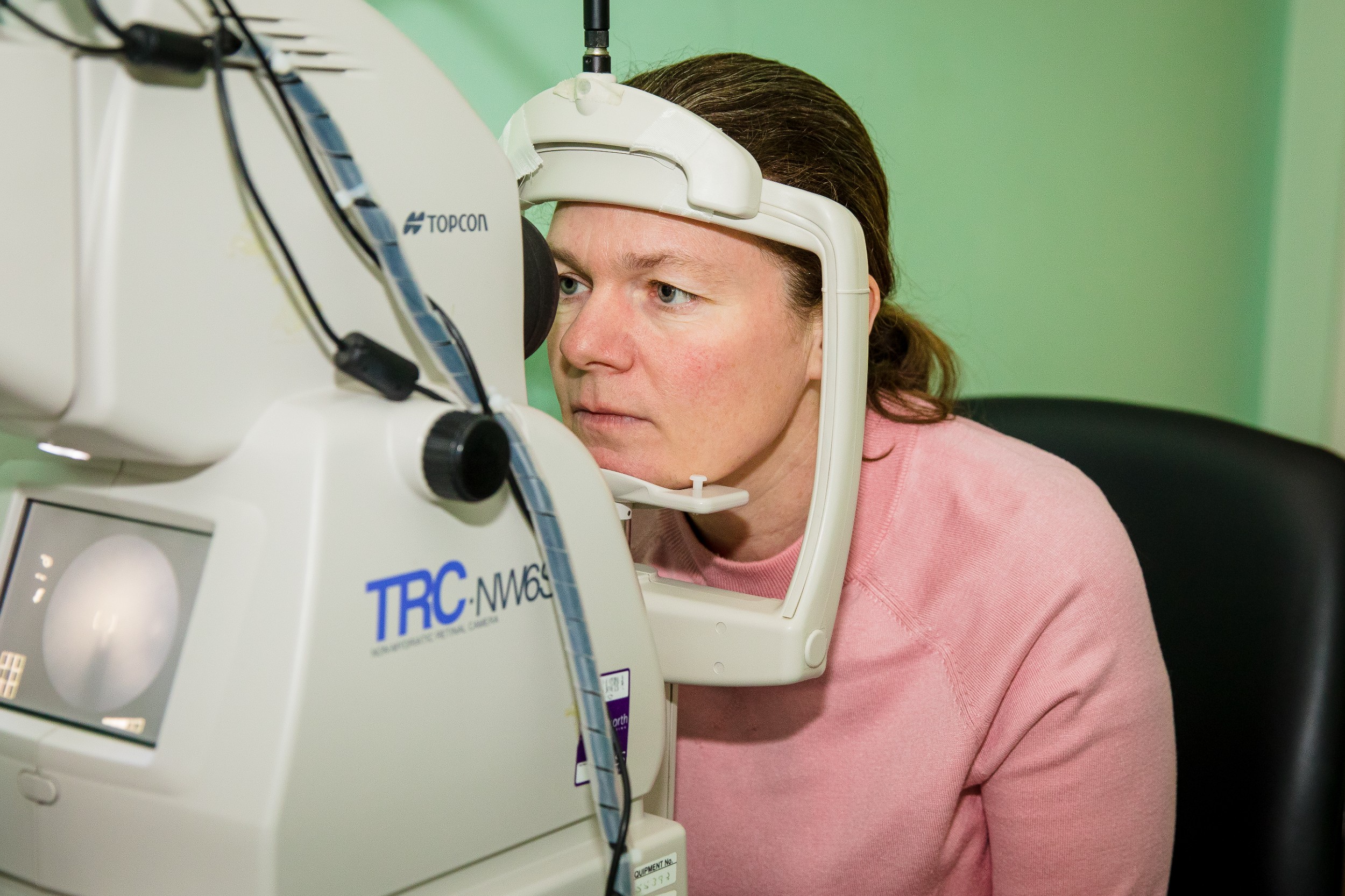About our service
Our aim is to help reduce the risk of sight loss for people with diabetes, by the prompt identification and effective treatment of sight threatening diabetic retinopathy, at the appropriate stage during the disease process. By attending your diabetic eye screening appointment, you can reduce this risk and early detection of any changes, at the back of the eye, can be treated which can avoid future complications or blindness.
Systematic screening involves digital photography of the retina followed by a two or three stage image grading process to identify the changes of sight-threatening diabetic retinopathy in the retina. Diabetic retinopathy is due to damage associated with the blood vessels supplying the retina, the 'seeing' part of the eye, which, if left untreated will cause serious deterioration in the acuteness of vision. Diabetic retinopathy is the single most common cause of blindness among people aged between 16 and 64 in Great Britain.
Patients are contacted by letter to attend for diabetic eye screening. Diabetic eye screening does not replace regular vision checks with an optometrist (ophthalmic optician), who should also be seen by patients for regular eye examinations relating to provision of spectacles.
Referrals are received from your General Practitioner (GP) as soon as you have been diagnosed with diabetes, regardless of age. Referrals received for those under the age of 12 years old are held until their twelfth birthday when an initial appointment is then sent.
We operate clinics across County Durham and Darlington in a wide range of venues and locations to ensure we provide patients with care as close to their own home as possible. Our administration services are based at Memorial Hall in Darlington, and we allocate appointments for all clinics as indicated below:
- Hundens Lane Rehabilitation Unit - Building/Entrance A (Darlington)
- Stanley Primary Care Centre (Derwentside)
- Shotley Bridge Community Hospital (Derwentside)
- Chester le Street Community Hospital (Durham and Chester le Street)
- University Hospital of North Durham - Eye Department, 1st Floor (Durham & Chester le Street)
- Bishop Auckland Hospital - Eye Department (Ward 9) (Durham Dales)
- Richardson Community Hospital - Barnard Castle (Durham Dales)
- Willington Health Centre (Durham Dales)
- Weardale Community Hospital – Stanhope (Durham Dales)
- Sedgefield Community Hospital (Sedgefield)
Clinics run across all sites on varying weekdays throughout the month with the first appointment of the day at 8.40am, and the last appointment at 4pm. Appointments usually last for 30 to 40 minutes and require the administration of eye drops, the effects of which may last up to six hours before your vision returns to normal. You must not drive until you are confident your vision has returned to normal, to do so before your vision has recovered may invalidate your motor insurance cover.
To book or change an appointment, or for all general enquiries please contact our administrative support team by telephone: 01325 342113 (8.30am to 4pm, Monday to Friday)
If so, we would appreciate your help in understanding how you view our services and what improvements you feel we could make. To have your say. All responses are anonymous and all feedback will be treated confidentially.
Our nationally accredited team members include:
Programme Manager
- Angela Ellis
Administration Team
- Karen Gay
- David Groom
- Greta Butrimaviciute
Optometrists
- Ellis Leatherbarrow
- Rebecca Troughton
Clinical Lead Ophthalmologist
- Komala Vadivelu
Secondary Screener / Graders
- Liam Rose
- Marta Hudson
Screener / Graders
- Ben O'Neill
- Daniel Horner
- Kate Vickers
- Louise Stewart
- Clare Newberry
- Lauren Stokoe
